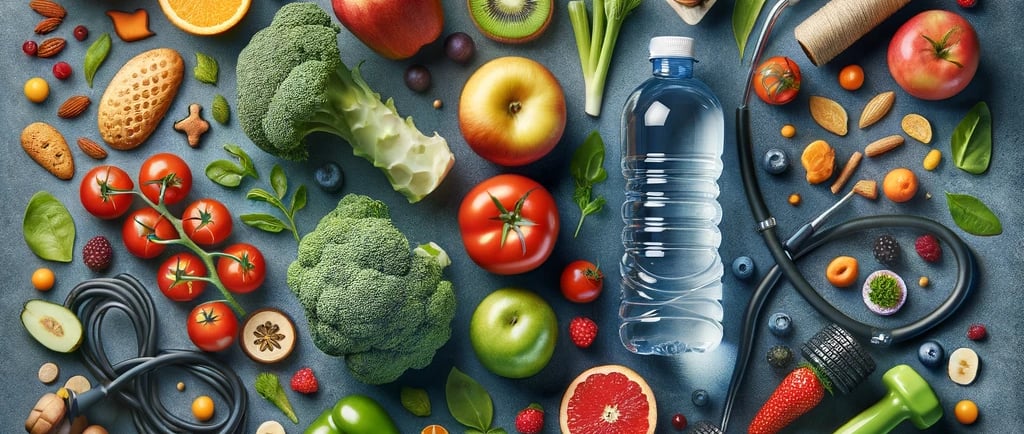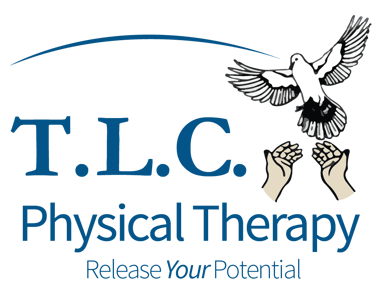The Essential Role of Nutrition in Physical Health
Explore the vital connection between nutrition and healing in our latest blog post at TLC Physical Therapy. Discover how staying hydrated, incorporating proteins, and ensuring a balanced intake of micronutrients can significantly enhance your recovery journey. Whether you're recuperating from an injury, managing chronic pain, or seeking to improve your overall physical health, this article offers valuable insights and practical advice to integrate nutrition into your recovery plan. Dive into real-life success stories and get answers to frequently asked questions about nutrition and healing. Empower your path to recovery with the right nutritional strategies. Read now to learn more and take the first step towards a healthier, stronger you.
3/5/20243 min read


Introduction: The Essential Role of Nutrition in Physical Health
At TLC Physical Therapy, we understand that healing and recovery go beyond physical therapy alone. Nutrition plays a critical role in this process, providing your body with the essential tools it needs to repair, rebuild, and rejuvenate. A well-nourished body can face the challenges of recovery with strength and resilience, highlighting the undeniable link between what we eat and how we heal. Jason Lamendola PT and the team at TLC Physical Therapy go through a few key points about nutrition and physical health.
Why Is Hydration Crucial for Recovery?
Water is the lifeblood of your body's recovery process. Staying adequately hydrated ensures that nutrients are efficiently transported to areas in need, supporting cellular health and facilitating the healing process. Dehydration can significantly hinder your recovery, slowing down the delivery of essential nutrients and delaying healing times. Incorporate hydrating foods like watermelon, cucumber, and strawberries into your diet, and make sure to drink water consistently throughout the day to support your body’s recovery.
The Power of Proteins in Healing
Proteins are the building blocks for repair and growth in the human body. They play a crucial role in healing, supporting the repair of muscle tissue and other vital structures. Incorporating a variety of protein sources, including lean meats, fish, legumes, and nuts, ensures your body receives the amino acids necessary for recovery. For those undergoing physical therapy, a protein-rich diet can be particularly beneficial, aiding in the rebuilding of strength and endurance.
Micronutrients: The Unsung Heroes of Recovery
Micronutrients, though needed in smaller amounts, are powerful allies in the healing process. Vitamins such as C and E act as antioxidants, protecting cells from damage, while minerals like zinc and B12 support wound healing and energy production. Eating a colorful variety of fruits, vegetables, nuts, and seeds can help ensure you're getting these essential nutrients to support your recovery.
Strategies for Integrating Nutrition into Your Recovery Plan
Every recovery journey is unique, and so are your nutritional needs. Begin by focusing on a balanced diet rich in fruits, vegetables, lean proteins, and whole grains. Consult with a healthcare professional, ideally a dietitian, who can help tailor your diet to support your specific recovery goals. Remember, your diet should adapt as your recovery progresses, meeting your body's changing needs.
Case Studies: Nutrition's Impact on Recovery Success Stories
At TLC Physical Therapy, we've witnessed firsthand the transformative effect of nutrition on recovery. From athletes recovering from sports injuries to individuals managing chronic pain, a focused approach to nutrition has played a pivotal role in their healing journeys. These success stories serve as a testament to the power of integrating targeted nutritional strategies into a comprehensive recovery plan.
Frequently Asked Questions about Nutrition and Healing
What foods should I focus on for faster recovery?
Concentrate on a balanced diet that includes plenty of fruits, vegetables, lean proteins, and whole grains.
Can hydration really affect my recovery?
Absolutely. Proper hydration is crucial for nutrient delivery and overall cellular function, directly impacting the healing process.
Should I take supplements during my recovery?
While real food is the best source of nutrients, supplements may be necessary in some cases. Consult with a healthcare professional for personalized advice.
Conclusion: Making Nutrition a Pillar of Your Recovery Journey
The journey to recovery is multifaceted, with nutrition playing a central role. At TLC Physical Therapy, we are committed to guiding you through integrating nutrition into your recovery plan, ensuring you have the support and knowledge needed to heal. Remember, nourishing your body with the right foods and staying hydrated can significantly enhance your recovery process.
Are you ready to enhance your recovery journey with a comprehensive approach that includes nutrition? Reach out to TLC Physical Therapy today at one of our Staten Island, Brooklyn, or Manhattan offices. Our team of dedicated professionals is here to support you every step of the way, offering personalized care plans that address your specific needs. Visit our website to learn more about our services or contact us directly to schedule a consultation. Let us help you achieve optimal health and wellness as you navigate your path to recovery.
